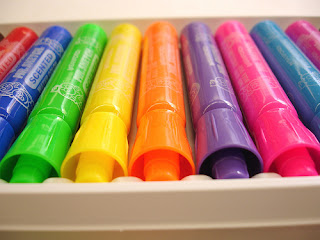One of my favorite
parts of starlet interviews is the inevitable “guilty pleasures” question,
where the blazing new talent confesses to a weakness for lettuce dipped in
mustard, or gluten-free pretzels crumbled into her daily cup of Pinkberry.
Along with
the million other reasons I’m not a starlet, this is certainly one. Cheez-Its and
black coffee, my favorite bad-for-me-treat, just doesn’t pass muster for a worthy
response to a serious question like that. And besides, I never feel guilty
about those few times I year I manage to get my mitts on this perfect combo,
only happy.
While I’m
not much for food-related guilt, I can totally identify with the same concept when
applied to reading. For one thing, there’s the gluttony problem. I come by it
honestly – I inherited it from my mother, who used to stay up all night to
finish the latest bestseller when she finally got it on request from the
library. She would greet me shamefaced in the morning, confessing that she’d
stayed up all night and read the whole thing. Her regret was always great. “I
just gobbled it up like a big hog,” she would wail, “and now I have nothing to
read!”
She passed
the addiction down to me, and poor Mary Katherine struggles mightily against
it, but more successfully. I am often impressed to hear her say of a book she
loves, “It’s really good, so I’m pacing myself – no more than 25 pages a night.”
Oh Mary, how I wish I had your grit.
In addition
to the gluttony, there’s also my problem with repetition. It started with that
Golden Book version of Little Women, which I reread at least once a year, letting
myself sob good and hard when (spoiler alert) Beth died.
According to
Google's advanced algorithms, there are currently nearly 130 million books in
the world (129,864,880, to be exact), and there are more than 300,000 new
titles published in the United States every year. With numbers that staggering,
it could seem just plain wasteful to go back and read something that’s already
been read. I suppose it is, but only if reading is considered to be nothing
more than information taken in, the way the abstemious equate food with
calories needed to sustain life. I might be a book glutton, but I’m also a book
gourmet, and I think there’s always room for a little savoring, especially when
I am most in need of the literary equivalent of comfort food.
This past
fall, I found myself confronting the sudden death of a friend, and my
commitment to give back-to-back eulogies at memorials that were being held for
him in two different cities on two consecutive weekends. One of the very first
things I did when I realized what I was about to embark upon was to visit the
library website and call up some of my favorites from Angela Thirkell’s WWII-era
Barsetshire series. I traveled to those funerals with a couple of the rattiest,
most recovered hardbacks on the planet, ones that still had the circulation
cards tucked into little pockets in the back. But I also traveled with Mrs.
Brandon, Lord Pomfret, David Leslie and Hampton and Bent, the alcoholic lesbian
couple who are possibly my two favorite characters in all of literature. These
ladies rename their dogs every couple of weeks, always for a valiant general
from the latest brave little country that the Nazis have invaded. They struggle
with Finnish, but prevail. And they love their gin, but good.
I found, as I settled
into bed post-eulogy (twice), that I wasn't so much experiencing reading,
as in spending some time with kind, comforting friends. When I think about my
best friends, I already pretty much know what they are going to say and do
before they do it, so the residents of Barsetshire are not all that different.
I still felt
sad when I finished my funeral duties, so I called out the big showbiz guns and
reread Moss Hart’s 1959 autobiography, Act One. Yes, I had read it twice before. I
knew that he’d eventually rise from poverty, meet George S. Kaufman, and write
the smash hit Once in a Lifetime. But it was fun, for a while, to pretend that
it all might turn out differently.
Come to think of it, I might get out my copy
of Little Women tomorrow. Maybe, just
maybe, this will be the time that (spoiler alert) Beth lives.







